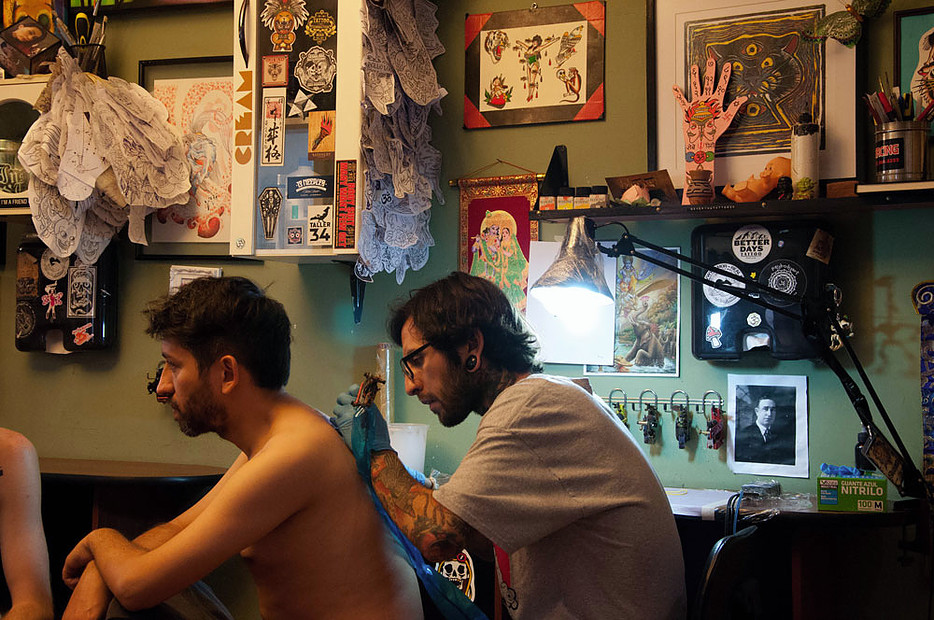the denial of systemic, historical and actual violence and complicity in harm (the fact that our comforts, securities and enjoyments are subsidized by expropriation and exploitation elsewhere);
Radical Political Imagination and Anticolonial Pedagogy in Frantz Fanon
11/07/2022
Our struggle for the acceleration of the end of the world as we know it will include a programming executed from counter-pedagogical notions. It will also contemplate imagination as a strategic field of destruction, resignification and invention situated within our struggle of low intensity and micropolitical scale.
Approaches and Impossibilities
Every principle of absence1 produces invisibility, because that which is, exists but is neither named nor recognized for its condition of existing: it is condemned to disappear. On the other hand, every colonial project will always operate from the logic of obliteration, and this, as its structural and organizing capacity, is the outcome of the ordered world's onto-epistemological pillars, as Denise Ferreira da Silva postulates.2
When I first became acquainted with Frantz Fanon's work, I was still in college studying Anthropology at the beginning of 2000. It was not within the program, much less by any of the professors, but outside and through a network of anti-racist thinkers and activists, radical pedagogies and Black and Indigenous feminisms with an anti-colonial perspective in tension with a deep racist immersion imposed in these territories, sustained and spread by the North American and English schools, the pedagogization of extractivism conveyed under the paradigm that humanity sustains, which we can identify today thanks to Fanon's work: the [white] cis-heterosexual and European man who departs from emptiness as the ordering principle of the materiality that will later be elaborated through onto-epistemological plundering, invention, normalization of the reification and intrumentalization of the other.
Professor Frantz Fanon may be known for many reasons: for his role as a revolutionary within the anti-colonial independence movement in Algeria as part of the Algerian National Liberation Front; for his role as a psychiatrist and thinker on the psychic and emotional effects of colonialism on colonized subjects; for his incisive analysis of freedom and its delusions, which encompasses alienation as a technology of capture within colonialism, as well as for his great influence on projects of critical and libertarian pedagogy, political and social theory, literary studies, in philosophy and cultural studies.
At the age of 25 Fanon was confronted with the structural racism of academia, colonialism and censorship when he wrote Black Skin, White Masks; what was to be his doctoral thesis in psychiatry which was rejected by the approval board. This would end up being one of his best known works after postcolonial, decolonial and anticolonial studies emphasized his analysis of racism as a structure and structuring of the world we inhabit based on the division of the world and the animalization of what was marked as non-human by colonial whiteness.
Fanon's emphasis on transforming the lives of those condemned by the colonial and racist institutions of the modern project can be identified throughout his trajectory, whether in his clinical writings, his political essays or his revolutionary treatises.
There is in Fanon's thought all the power of entrenchment of radical imaginaries that are placed on the need to build other worlds whose horizon is drawn from ethics and vital force, from the commitment to lived experience and the importance of questioning the legacy that coloniality itself sustains in our bodies, dreams and territories, whose effects materialize in the veins of the projects of the Nation-States: migration policies, policies of restriction of health and housing rights, projects of extraction and privatization of Indigenous territories, etc. In response to this, Fanon developed a whole ethical-political proposal for the end of this world.
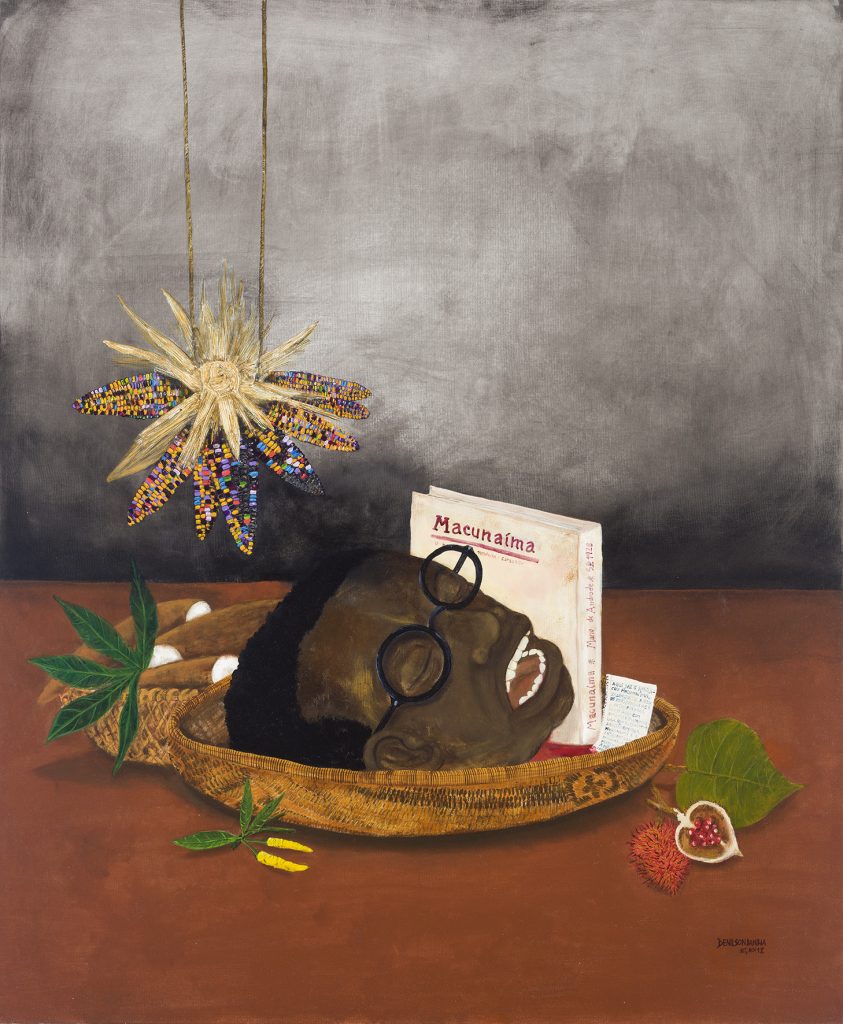
A change of route within the ordered world, the infection in the crack that opens on the line of the Human, the value and privileges that this brings with it (in capital letters), as well as the biologicist concept on race, the question of raciality and the effects of racialization under this same experience of the world we inhabit are situations that Fanon devotes himself to reflect upon. However, the contribution that his work makes to the dismantling of the ordered world is not limited to the understanding of coloniality in its economic and interdependent aspect, but also denounces the different forms of subjectivation in its broad sense, thus taking one of the spaces that violence in its total and partial forms have disputed over centuries: mental health or the administration of psychic discomfort in the global South.
The colonizer not only takes possession of the land, its components delimited as resources and the possibilities of accumulation that he invents from it, but also of our bodies and our dreams, monopolizing, likewise, the ways of imagining, understanding and relating to the world, allowing all interaction to be pierced again and again by the wound inflicted by the Lord himself. It is here that we have the opportunity to invert the denied history departing from absence as a principle.
“To wreck the colonial world is henceforward a mental picture of action which is very clear, very easy to understand and which may be assumed by each one of the individuals which constitute the colonized people. To break up the colonial world does not mean that after the frontiers have been abolished lines of communication will be set up between the two zones. The destruction of the colonial world is no more and no less that the abolition of one zone, its burial in the depths of the earth or its expulsion from the country.”
What if we were to opt for the acceleration of the end of this world based on the program that recognizes the ways in which violence is administrated, assuming that there is no kind, courteous and much less peaceful reordering (because peace will always be a white principle) in the restitution of dignity, and the possibility of assuming humanity that has been annulled for different non-white-non-European populations, as well as the recovery of the total value on the extraction of native lands?3
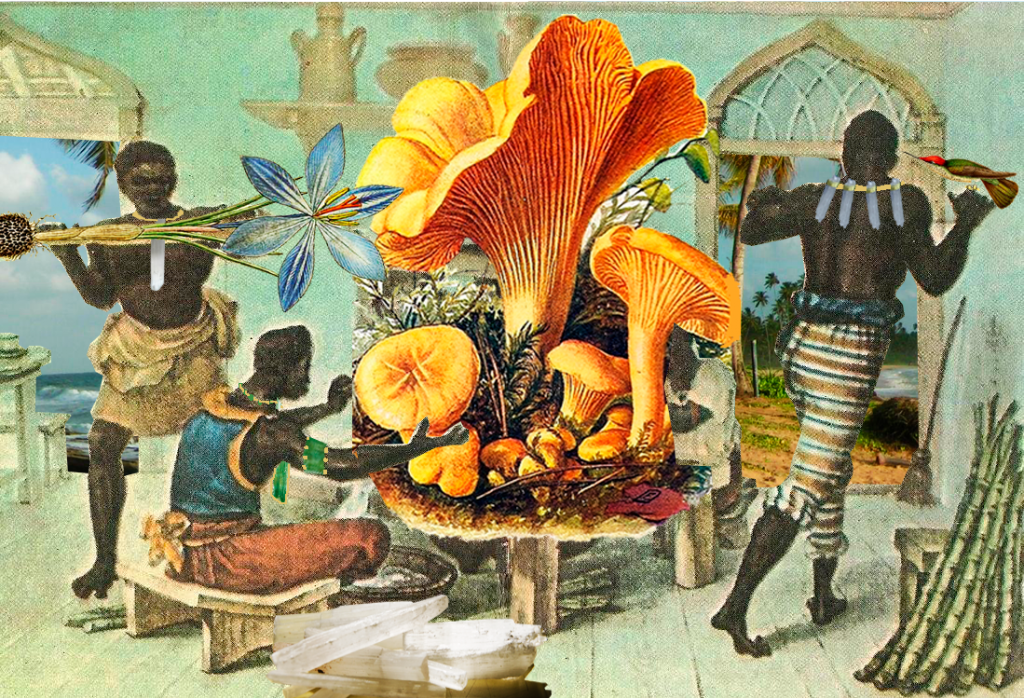
For a Fanonian Program Towards Figuring the End of the World as We Know It
"There are people talking a lot about the end of the world,
what end of the world is that?
Which fucking world is that that is coming to an end?
I am living the end of my world, right? The world in which
I was raised, that western world, how to survive this one
where death, mine, the death of a black testiculated and
feminine body is programmed? It's on the agenda.
For this world to continue to exist it is necessary
for me to die. Bixa4 people must die,
transvestite people must die,
Indigenous people must die,
Black people must die for this world to survive.
I do not want this world to survive.
I don't want this western world to survive,
I want it to come to an end.
And look, sincerely every body feels the end of the world."
The end of the world as we know it—the end of management and governance based on the extraction, plunder, displacement, and death of all living beings on this planet, that is, the total collapse of the Western-driven civilizational project—makes it necessary to recognize that the figuration of "the end," in linear terms, has been experienced for decades throughout our formerly colony territories of the Global South. Specifically among the communities of anti-colonial resistance that struggle for the autonomy of their territories with which profit is made from the same State projects mentioned above. Such profit in turn works to generate privileges and comforts for the big cities and capitalist centers clinging to reproduce the paradigm of life on the line of the human.6
Following Fanon, our struggle for the acceleration of the end of the world as we know it will include a programming executed from counter-pedagogical notions.7 It will also contemplate imagination as a strategic field of destruction, resignification and invention situated within our struggle of low intensity and micropolitical scale. It will be, therefore, a program proposal committed to the four denials enunciated by the collective Gesturing Towards Decolonial Futures (GTDF):
the denial of the planet's limits and of the unsustainability of modernity-coloniality (the fact that the finite earth-metabolism cannot sustain indefinitely exponential growth, consumption, extraction, exploitation and expropriation);
the denial of entanglement (our insistence on seeing ourselves as separate from each other and from the earth, rather than "entanglements" within a larger living metabolism that is biointelligent); and,
the denial of the magnitude and complexity of the problems we must face together (the tendency to seek simplistic solutions that make us feel and look good and that may address the symptoms but not the root causes of our complex collective situation).
For the GTDF, these four negations function as constraints to feeling, relating and imagining the opposite of socialization within modernity-coloniality (or, as Suely Rolnik proposes, for those of us within the factory of the colonial-racializing-capitalistic-unconscious). Thus, for the elaboration of a program that allows us to project the figurations about the end of the world as we know it, we’ll have to move away from imaginaries captured by white supremacy and the technologies of whiteness that bombard us with Mad Max-like Hollywood images. We’ll have to refuse to think of futures of dismembered bodies sustained by mechanical prostheses, as well as to inhabit the lethargy of expropriation, scarcity, displacement, and the real estate monopoly that nation-states promote. Because the future in its maximum precarious expression is already happening; because the unsustainability of our bodily integrity is part of our ways of narrating, inhabiting and finding ourselves in our everyday life that mobilizes us through anxiety, depression and neurosis.
How can we break with the violent logic established by Humanity? In what way can we make the encounter a program of collective renunciation of plantation logics? Towards what collective strategies can we summon ourselves for the emancipation of what we call "psychic malaise"? How do we break with Humanity's pact and mandate as the only possible world form if we allow ourselves to continue to inhabit post-colonial captivity?
The deployment of the program for the end of the world as we know it will involve, strictly speaking, the gestures of recovering the total value of exploitation, both of the labor of racialized bodies and of the territories that today are occupied by the great extractive projects of legality as the maximum expression of juridical materiality of these same projects. Entanglement, disorder and the impossibility of crossing captivity as activating elements of the collective imagination's total power will be the poetic-political principles of this program. Thus, the program for the end of the world as we know it is an always combative decolonization.
Reversing the Order of the Given
"Each generation, within a relative opacity,
has to discover its mission, fulfill it or betray it."
We introduce invention into existence or we call for the redistribution of violence,8 either exercise summons us to micro-political action in such a way that we are destined to encounter each other. Fanon continually appealed to the encounter as a subversive act, even more so in these times; the encounter for conspiracy, imagination and the collective dream because even breaking the pact that Humanity imposes must be, first of all, a journey where the needs of the collective function as an impulse and ethical-political horizon.
So we find ourselves here before the possibility of inhabiting the disorder that the colonial rupture has produced, we are facing the opportunity to continue building and betting on politics of indigestion as a possibility of resistance to capture and escape from the delusions of individuality; we have built the possibility of inhabiting opacity as a survival tactic. In Black Skin, White Masks, we learn from Fanon that to renounce Humanity that the West constitutes is also to renounce the logics that progressive citizenship itself promotes in the great cities of egoic capital. To renounce Humanity as a paradigm of modernity-coloniality allows us to stop inhabiting the captivity of mental health and the subjectivation of the pill, injections and ideologization administered by cutaneous means.
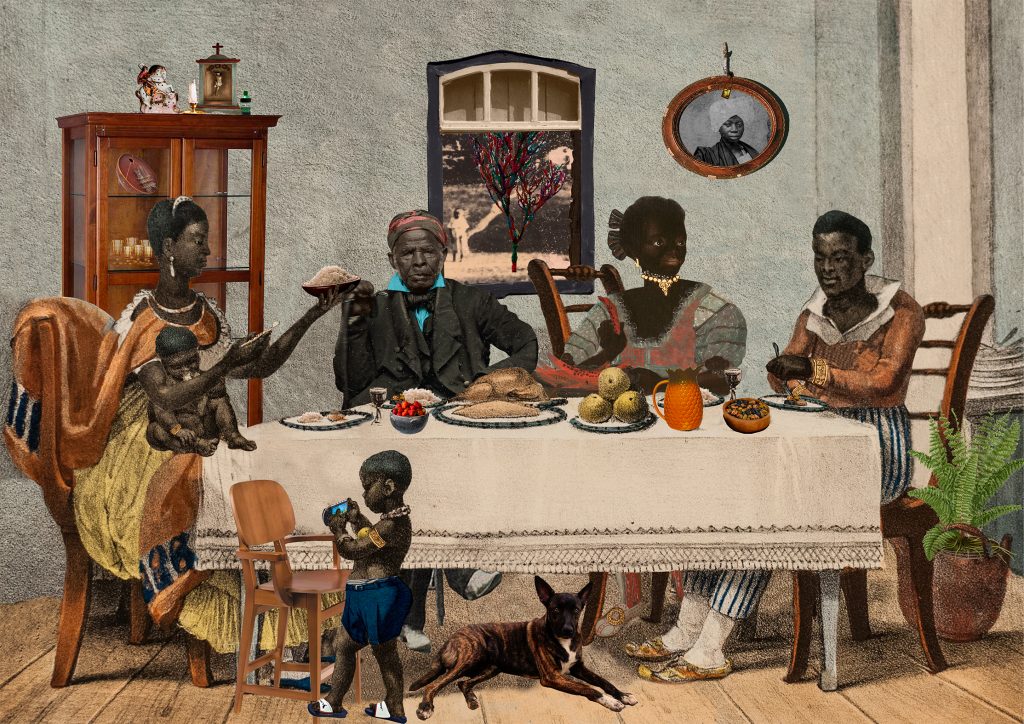
To make the 180-degree turn to reject, detach ourselves and question what has been done to our bodies based on the markers of race, class, gender and the encapsulation of territory for white consumption. Fanon's thought allows us to dilute the effects that the aforementioned categories produce at the juridical materiality level of the world as we know it. Unlearning, disengaging and un-knowing what has been given and administered to us as truth; un-seeing, un-feeling that which has been imposed on us by the aesthetic regime of extermination.
For Fanon, liberation is the end of the colonial system under the settler's own cultural, social and linguistic terms. How do we subvert freedom when it is already captured in a web of meaning elaborated by the capitalist-colonial and necropolitical CIStem itself? How do we unlink the notion of 'freedom' from individual precepts to transfer them to the collective's needs? How do we liberate ourselves from Humanity as a stratifying structure and factory of residual lives?
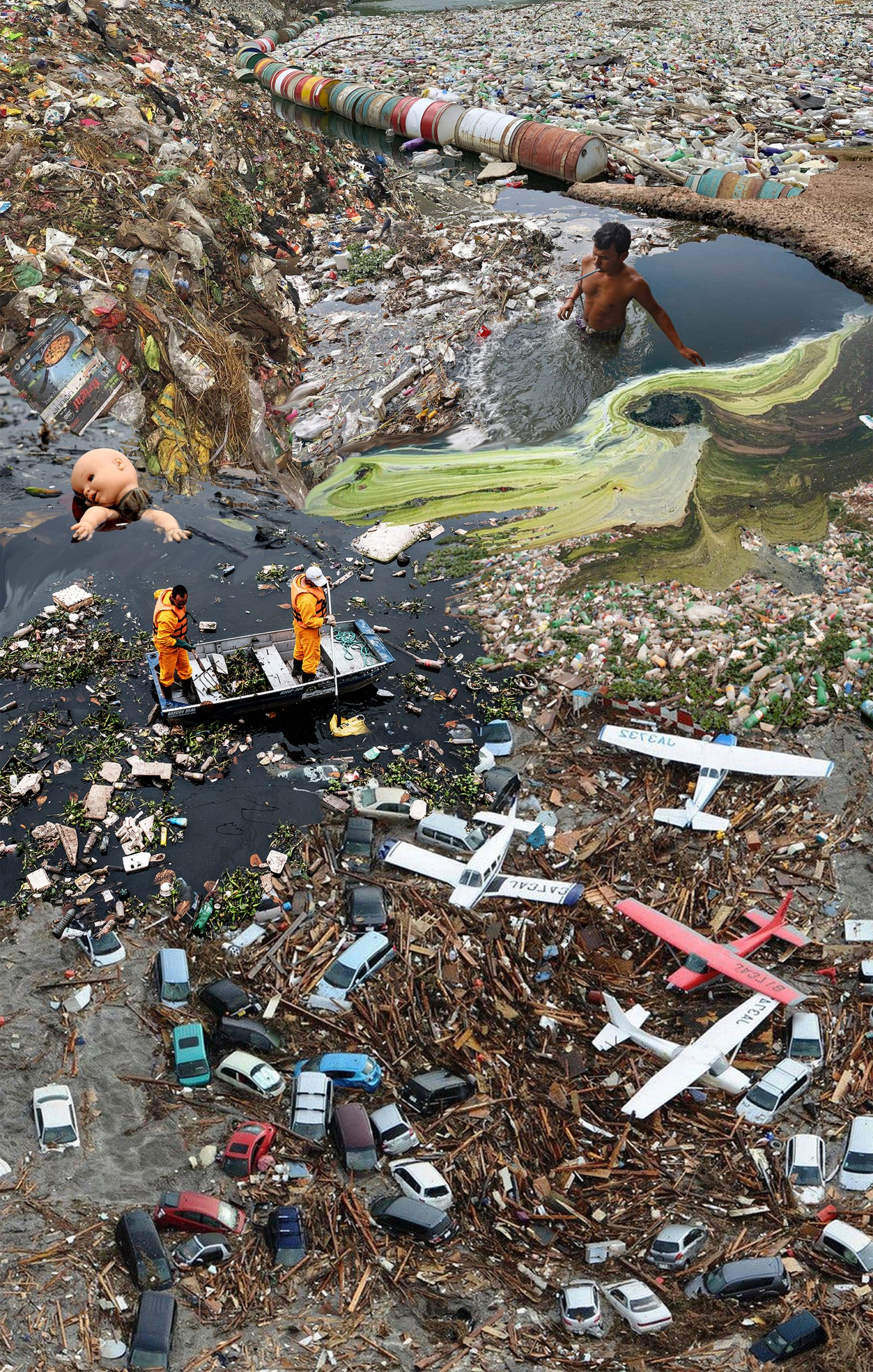
What would happen if we continue with our low-intensity political project for the dismantling of this world? What would happen if we oppose the institutionalization of knowledges, doings and feelings? What would be the effects of assuming that the only possible way to stop micropolitics is to allow this world to die?
Revisiting Fanon today is not a proposal of abandonment for the sake of abandonment, but the attempt to provoke the review of the genealogy around Humanity, its causes and effects throughout these centuries with a punctual relation traced from the zone-of-not-being from which our notion of liberation/freedom has been constructed in any of the spheres from which in a pulsional way we build worlds.

